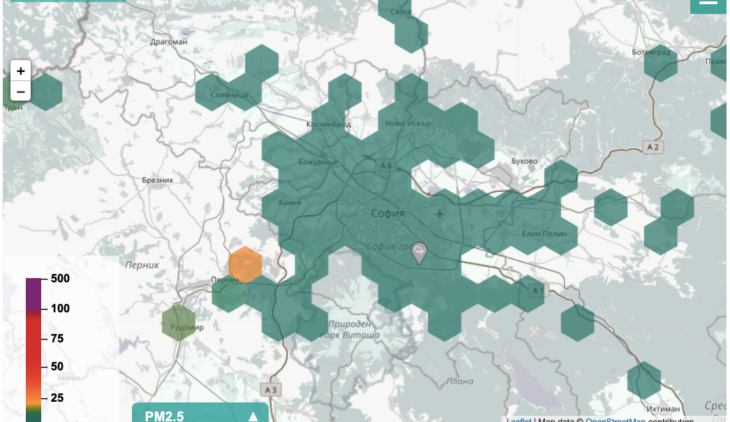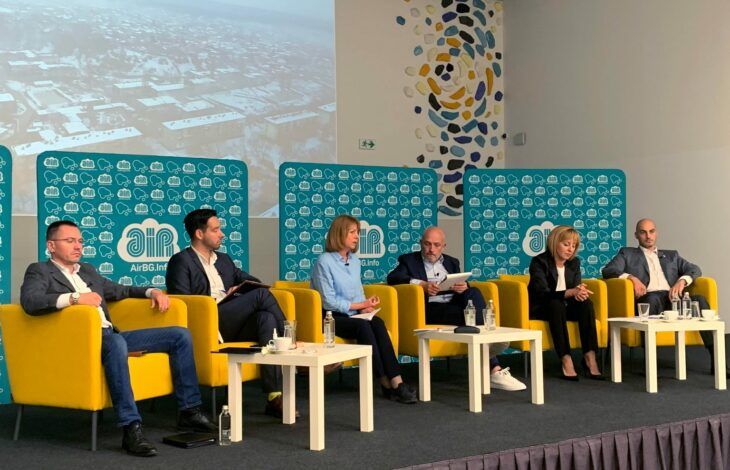The problem:
The WHO estimates that air pollution costs the equivalent of nearly 30% of the country’s GDP through reduced productivity and the costs of treating the diseases caused.
Despite this, until recently air pollution was not a major public concern in Bulgaria, and political will to address it was low. The Clean Air Fund has supported a range of efforts to change that in the past few years.
The solutions:

The first step, as ever, is data. AirBG.Info convenes a network of citizen volunteers who measure air quality using a network of sensors they have grown to more than 1000 around the country in three years. At the same time, the organisation has built a highly engaged following of 30,000 on Facebook.
We believe in the power of data. We are providing people with real data and they make their decisions about schools, homes, cities, and politicians too. This is how we are building the change step by step.
Stefan Dimitrov – co-founder and driving force behind AirBG.Info.
Alongside grassroots activity, coordinated political action has also been critical. The Clean Air Fund helped organizations to collaborate in pushing for change during Bulgaria’s 2019 local elections. We helped organise meetings and joint strategies, led by a video campaign fronted by doctors and celebrities which targeted candidates and voters to raise awareness of the health impacts of air pollution.
The impact:

This package of activities helped bring about the first ever mayoral debate on air quality in Sofia.
Under the heading “What can the next mayor do for cleaner air in Sofia?” candidates addressed questions drawn from a coalition of Bulgarian NGOs on key issues related to air quality, such as energy poverty, transportation and waste management.
The pressure worked. In 2019 the newly re-elected Mayor of Sofia announced numerous measures including:
- an increase of local tax on heavily polluting cars
- criminalising unregulated waste incineration
- purchasing a fleet of new electric buses
- launching a campaign for free replacement of old biomass heaters with gas and pellets.
The citizen data-collection initiative increased public awareness, media coverage and helped win political support for action on clean air.
The Clean Air Fund is now increasingly seeing and supporting public applications for low-cost data sensors to fill gaps in official data measurements. We are also now looking to extend the low-cost monitoring network to other cities in Bulgaria and neighbouring countries to initiate similar developments.